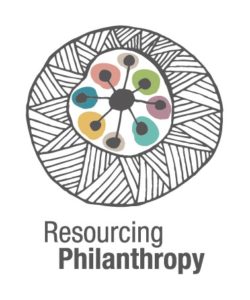Risk with Vision: Placing Informed ‘Big Bets’
Resource type: News
Resourcing Philanthropy |
 By Gillian Mitchell, Gabrielle Ritchie and Melanie Judge
By Gillian Mitchell, Gabrielle Ritchie and Melanie Judge
Philanthropy and risk are not natural bedfellows.
For most of us philanthropy invokes an impression of measured resolution, gravity and thoughtfulness. Philanthropy makes considered interventions into areas of society that are not delivering on rights or opportunity and, as a result, frequently intervenes at the junctures when individuals and communities are at their most vulnerable. Philanthropy, therefore, repeatedly carries the weighty responsibility of getting things right because lives and livelihoods are imperilled. Philanthropy contributes to building better communities and healthier societies and in so doing bends our world toward becoming one that is more compassionate and just — a solemn responsibility indeed.

Risk in its purest form on the other hand has an air of unpredictability and dashing confidence that we usually associate with adventure and a somewhat free-spirited attitude toward guaranteed outcomes. Risk when associated with the areas of engagement of philanthropy generates a frisson of unease and is usually treated caution and more than a little prudent vigilance. Risk is not an obvious marker for successful philanthropy. And yet, there is overwhelming evidence to suggest that philanthropy that gives rise to profound change and that produces enduring difference in a society only does so if it embraces risk as a crucial element of philanthropic strategy and grantmaking.
In South Africa the last two decades have produced extensive political and social change. Despite being a democratic and right-based dispensation, we still face enormous challenges in regard to poverty, unemployment and equitable access to quality services in education, water and sanitation, and healthcare, amongst others.
The continuing urgent demand on philanthropy to fund short-term palliative programmes has caused local giving to veer away from more audacious ventures, to charitable forms of giving that focus on the immediate needs of a persistently distressed society.
Philanthropy that funds bricks and mortar and capital asset acquisition is not a considered favourably by the majority of South African philanthropists. South African philanthropy has moved a great distance from the days of big donations that funded buildings and equipment at many of our anchor institutions. In the past it supported, often with no guarantee of outcome, processes and asset acquisition that have proved in hindsight to be stellar examples of visionary grantmaking. Today, examples of that kind of visionary grantmaking are the exception rather than the norm.
Philanthropy and Risk
Risk with vision requires funders to be able to imagine, with their grantees and beneficiaries, a difference that requires bold interventions. Audacious projects such as, for example, the construction of multi-million rand buildings, support for legal action, or assistance to emerging grassroots organisations that have little infrastructure and under-developed operational frameworks, do not have certain outcomes. But by eschewing the safety of the known, this kind of philanthropy has the ability to profoundly advance the lives of people who are subjected to disadvantage and marginalisation. This is philanthropy that places big bets that prevail over time. It is also philanthropy that sometimes fails to achieve those ends. The ability to manage the big vision together with high impact and possible high risk, is the hallmark of strategic social philanthropy.
In order for philanthropists to achieve systemic change they must be prepared to take on the audacious projects and the big bets.
Unlike business and government, philanthropy has both the means and relative freedom to select and support projects that do not, necessarily, have easily quantifiable or proven outcomes. Risk in this sense is not foolishly chasing dreams merely for the sake of the dream, but rather an informed leap of faith that, if successful, will produce tremendous benefit and springboard significant change.
This article is an edited extract from Risk with vision: placing informed big bets, a section of Resourcing Philanthropy that chronicles examples of projects where grantmakers go beyond the safe and guaranteed, and navigate uncertain territory in pursuit of lasting change.
Read more in this series:
- Margin to Centre: How philanthropy can help guarantee constitutional rights in South Africa
- Here’s Why Funders Should Support Advocacy
- What does collaborative donor practice look like?
 Resourcing Philanthropy is a new online platform that profiles philanthropic giving through the sharing of information, advice, tactics, tools and insights from grantmakers, non-profit leaders and philanthropists in South Africa.
Resourcing Philanthropy is a new online platform that profiles philanthropic giving through the sharing of information, advice, tactics, tools and insights from grantmakers, non-profit leaders and philanthropists in South Africa.
Drawing on the grantmaking experience and impact of The Atlantic Philanthropies, Resourcing Philanthropy is dedicated to growing the funding sector in South Africa by showcasing grantmaking approaches that are proven to work, in particular those that seek to advance human rights and social justice.
Resourcing Philanthropy was funded by The Atlantic Philanthropies and developed by Gillian Mitchell, Gabrielle Ritchie and Melanie Judge of eMRJ — an independent association of consultants that provides services and support to NPOs and donors.